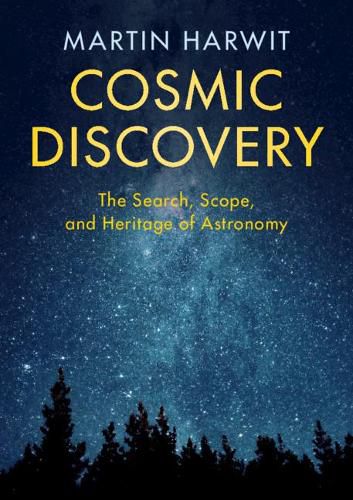Readings Newsletter
Become a Readings Member to make your shopping experience even easier.
Sign in or sign up for free!
You’re not far away from qualifying for FREE standard shipping within Australia
You’ve qualified for FREE standard shipping within Australia
The cart is loading…






Martin Harwit’s influential book, Cosmic Discovery, is rereleased after more than thirty-five years, with a new preface written by the author. The work chronicles the astronomical discoveries up to the late twentieth century and draws conclusions that major discoveries have often been unexpected, unrelated to prevailing astronomical theories and made by outsiders from other fields. One trend alone seems to prevail: major discoveries follow major technological innovations in observational instruments. The author also examines discovery in terms of its political, financial, and sociological contexts, including the role of industry and the military in enabling new technologies, and methods of funding. The challenges encountered by astronomy in the 1980s are remarkably similar to those astronomers face today. Difficulties persist in controlling recurrent cost overruns on planned missions, and in confronting mounting costs in developing observatories for detecting gravitational waves, high-energy cosmic rays, and particles that might explain dark matter.
$9.00 standard shipping within Australia
FREE standard shipping within Australia for orders over $100.00
Express & International shipping calculated at checkout
Martin Harwit’s influential book, Cosmic Discovery, is rereleased after more than thirty-five years, with a new preface written by the author. The work chronicles the astronomical discoveries up to the late twentieth century and draws conclusions that major discoveries have often been unexpected, unrelated to prevailing astronomical theories and made by outsiders from other fields. One trend alone seems to prevail: major discoveries follow major technological innovations in observational instruments. The author also examines discovery in terms of its political, financial, and sociological contexts, including the role of industry and the military in enabling new technologies, and methods of funding. The challenges encountered by astronomy in the 1980s are remarkably similar to those astronomers face today. Difficulties persist in controlling recurrent cost overruns on planned missions, and in confronting mounting costs in developing observatories for detecting gravitational waves, high-energy cosmic rays, and particles that might explain dark matter.